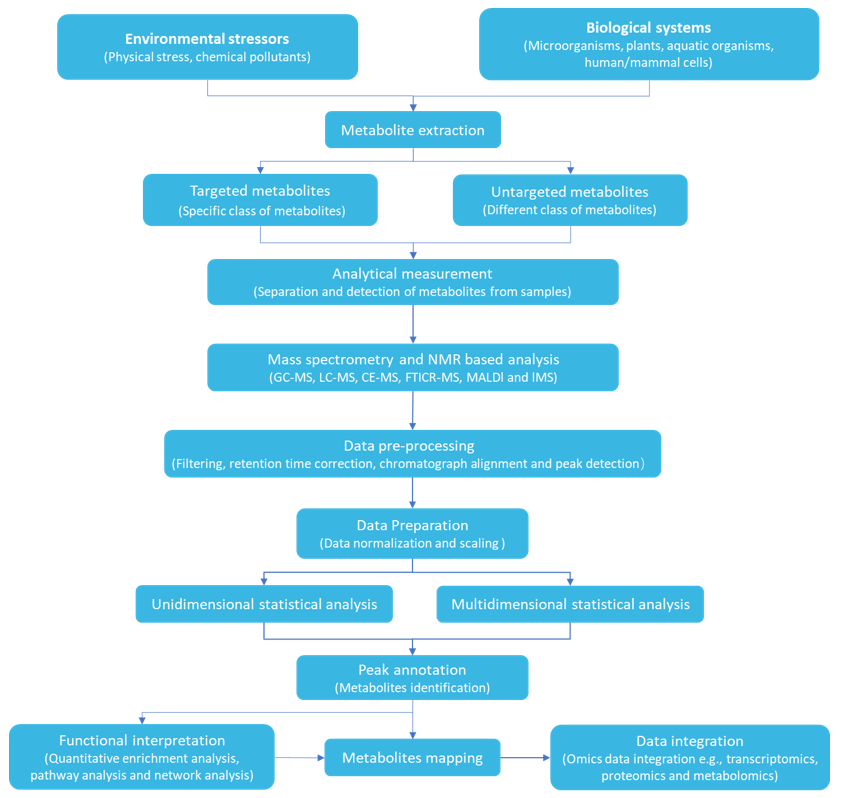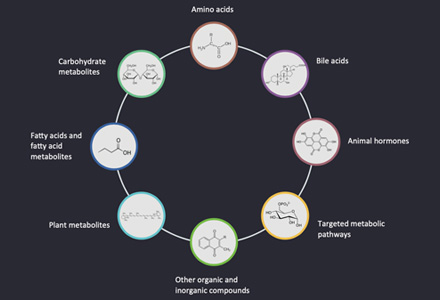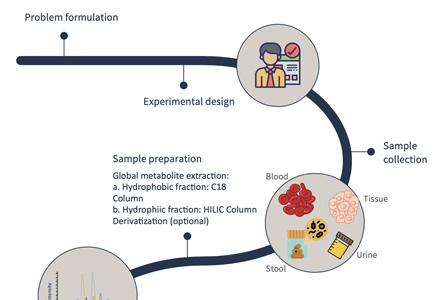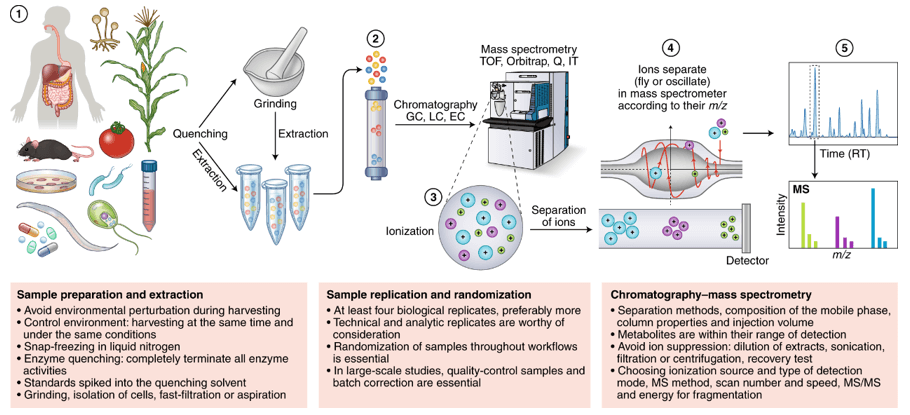Ecotoxicology is centered on the study of the hazards and protection of non-human organisms (animals, plants, microorganisms) and their ecosystems by toxic and harmful factors, especially environmental pollutants, in order to protect the ecological environment. Metabolomics is able to observe early and/or sensitive responses to contamination. In ecotoxicological studies, the metabolome is able to link contaminant exposure of antecedent species to the early detection of hazards. Combined metabolomics and transcriptomics analysis can elucidate the pathways of adverse outcomes, thereby linking contamination damage to harmful outcomes in the species of interest.
Creative Proteomics offers metabolomics solutions for ecotoxicology studies based on high-resolution liquid chromatography and mass spectrometry technologies and advanced instrumentation. Metabolomics techniques are used to analyze a variety of endogenous biochemicals that may be affected by contaminants, to detect ultra-low limits of the contaminants themselves, and to analyze the environmental impact of toxic chemicals and their effects on biological organisms and their populations, communities, and terrestrial, freshwater, or marine ecosystems.






